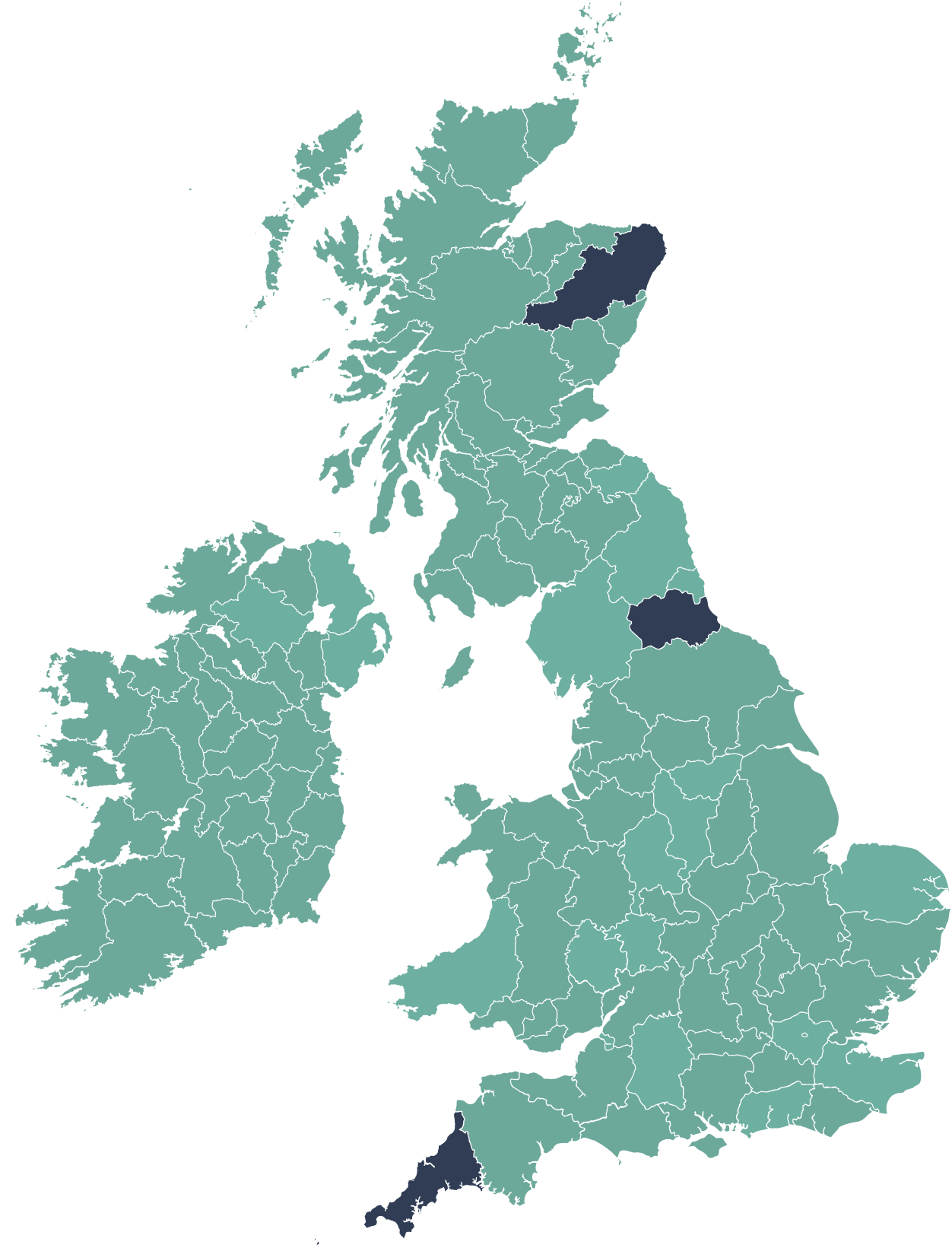CrossCountry Trains supported the planting of 1,600 climate resilient trees across the UK in 2023-24
CrossCountry Trains is working in partnership with GreenTheUK and the Royal Forestry Society (RFS) to plant new climate resilient trees across UK woodlands. This project focuses on excellence in woodland management, working with foresters and aborists to ensure we are planting for the future with knowledge being shared from one generation to another.
Planting for the future means nurturing skills that will protect woodlands from pests, diseases and improve resilience to climate change. 41% of England’s woodlands are unmanaged or under-managed, which poses threats to the health and sustainability of woodlands. CrossCountry Trains is helping to support tree planting rooted in knowledge of UK woodlands, looked after by experts.
The Committee on Climate Change recommends woodland cover is increased to a minimum of 17% by 2050, requiring 30,000 to 50,000 hectares a year of woodland creation. This will store carbon, increase biodiversity, flood control and create a low-carbon route to increassing the resilience of the rural economy.
This planting season, 2023-24, the UK has seen 11 named storms, according to the met office highlighting the need to act each planting season to protect and restore UK woodlands.
This year, CrossCountry Trains has planted 1,600 climate resilient trees in the UK to help take climate action.

Tree Species Planted:
400 trees planted in Cornwall
This woodland was planted 30 years ago as a mix of ash, beech, cherry and oak trees. Sadly in 2017, the deadly tree disease Ash Dieback was spotted in the woodland. Diseased ash trees (making up around 30% of the woodland) had to be cut down to stop the disease spreading to other areas. 10 additional tree species have been planted in amongst the surviving trees, making this a healthy, more diverse woodland for local wildlife.
130 trees planted in County Durham
This woodland was badly affected by Storm Arwen and many trees were destroyed. The trees that were lost in the storm have been replaced with a mix of broadleaf and conifer species. These trees were planted in a pattern designed specifically so that slower growing trees will be sheltered by faster growing trees as they establish themselves. By planting the trees in this way, all the trees in the woodland will support each other. This will help the woodland to become more resilient to the more frequent storms and gales that we are likely to see in the future, due to climate change.
1,070 trees planted in Aberdeenshire
This woodland was badly damaged in 2019 by Storm Arwen. The storm took out several pockets of trees within the woodland. As part of this project, damaged and fallen trees have been replaced with a mix of evergreen and deciduous trees. Smaller trees, such as aspen, willow and rowan will form an understory that will be particularly beneficial to local wildlife. Above this, faster growing trees such as spruce, larch, fir and cedar will form a canopy and help protect trees from further storms.

UN's Sustainable Development Goals
As a GreenTheUK partner, you support projects that are in line with the UN Sustainable Development Goals.

Take urgent action to combat climate change and its impacts.

Sustainably manage forests, combat desertification, halt and reverse land degradation, halt biodiversity loss.

















































































.jpg)
.jpg)
.jpg)
.jpeg)
.jpeg)
.jpeg)
.jpeg)
.jpg)
.jpg)
.jpg)
.jpg)
.jpg)
.jpg)
.jpg)
.jpg)
.jpg)
.jpg)
.jpg)
.jpg)
.jpg)